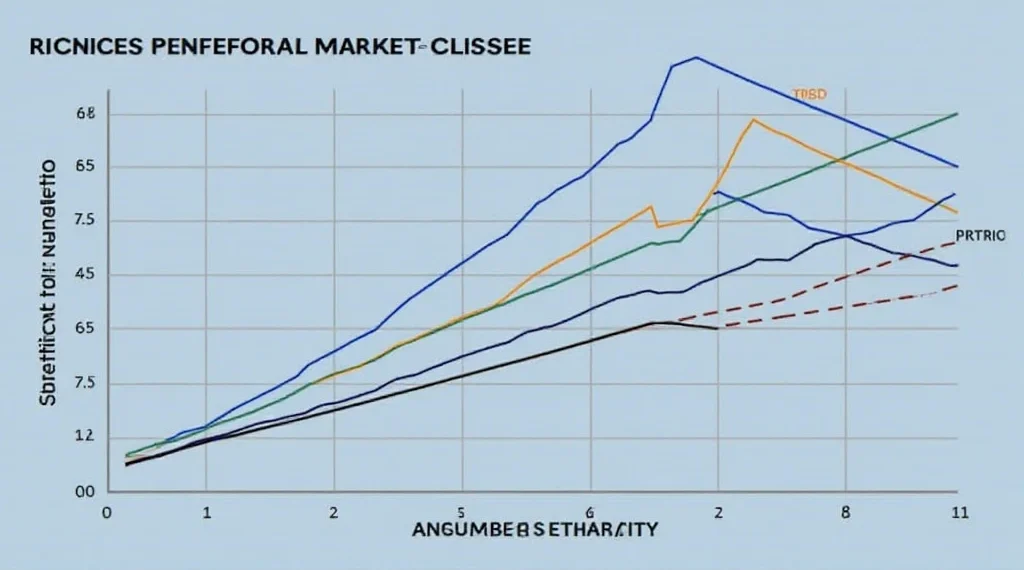<h2>Introduction</h2>
<p>With a staggering <strong>$4.1 billion</strong> lost in DeFi hacks in 2024, investors are increasingly recognizing the need for robust risk management strategies in the cryptocurrency space. Stress testing crypto portfolios is becoming essential for both stability and peace of mind.</p>
<h2>Understanding Stress Testing</h2>
<p>Stress testing involves simulating extreme market conditions to evaluate how a portfolio would perform. Think of it as a fire drill for your investments; if the market were to tank or surge unexpectedly, how would your assets hold up?</p>
<h2>Why Stress Testing Matters</h2>
<p>Stress testing helps identify weaknesses in your portfolio, enabling you to make informed adjustments. After all, you wouldn‘t want your hard–earned investments to be vulnerable. Specifically, in the context of the <strong>Vietnamese market</strong>, where the growth rate of crypto users is forecasted to be over <strong>23%</strong> annually, understanding these risks becomes increasingly crucial.</p>
<h2>Methods for Stress Testing</h2>
<ul>
<li><strong>Historical Simulation:</strong> Analyze how your portfolio would have fared in previous market downturns.</li>
<li><strong>Scenario Analysis:</strong> Create hypothetical scenarios, such as regulatory changes or technological failures, to assess impacts.</li>
</ul>
<p>Using real market data enriches this analysis. For instance, consider how grouping your assets can affect overall portfolio performance under various conditions.</p>
<h2>Real–Life Example: A Portfolio Under Stress</h2>
<p>Imagine a portfolio comprising Bitcoin (BTC), Ethereum (ETH), and several altcoins. By applying stress tests, an investor can assess the potential impact of a <strong>30% drawdown</strong> in BTC prices on overall holdings.</p>
<h2>Tools for Effective Stress Testing</h2>
<p>Several tools can aid in this process:</p>
<ul>
<li><strong>CoinAPI:</strong> Evaluate past price movements.</li>
<li><strong>CryptoCompare:</strong> Conduct comparative analyses.</li>
</ul>
<p>Moreover, always remember, this is not financial advice. For any investment decision, consult local regulators.</p>
<h2>Conclusion</h2>
<p>As the cryptocurrency market evolves, stress testing crypto portfolios will play a pivotal role in risk management strategies. By understanding potential pitfalls and leveraging the right tools, investors can bolster their defenses against market volatility. Visit <a href=“https://www.<a target=“_blank“ href=“https://okhtx.com“>okhtx</a>.com“>OKHTX</a> to learn more about effective strategies for portfolio management.</p>
<p>With a staggering <strong>$4.1 billion</strong> lost in DeFi hacks in 2024, investors are increasingly recognizing the need for robust risk management strategies in the cryptocurrency space. Stress testing crypto portfolios is becoming essential for both stability and peace of mind.</p>
<h2>Understanding Stress Testing</h2>
<p>Stress testing involves simulating extreme market conditions to evaluate how a portfolio would perform. Think of it as a fire drill for your investments; if the market were to tank or surge unexpectedly, how would your assets hold up?</p>
<h2>Why Stress Testing Matters</h2>
<p>Stress testing helps identify weaknesses in your portfolio, enabling you to make informed adjustments. After all, you wouldn‘t want your hard–earned investments to be vulnerable. Specifically, in the context of the <strong>Vietnamese market</strong>, where the growth rate of crypto users is forecasted to be over <strong>23%</strong> annually, understanding these risks becomes increasingly crucial.</p>
<h2>Methods for Stress Testing</h2>
<ul>
<li><strong>Historical Simulation:</strong> Analyze how your portfolio would have fared in previous market downturns.</li>
<li><strong>Scenario Analysis:</strong> Create hypothetical scenarios, such as regulatory changes or technological failures, to assess impacts.</li>
</ul>
<p>Using real market data enriches this analysis. For instance, consider how grouping your assets can affect overall portfolio performance under various conditions.</p>
<h2>Real–Life Example: A Portfolio Under Stress</h2>
<p>Imagine a portfolio comprising Bitcoin (BTC), Ethereum (ETH), and several altcoins. By applying stress tests, an investor can assess the potential impact of a <strong>30% drawdown</strong> in BTC prices on overall holdings.</p>
<h2>Tools for Effective Stress Testing</h2>
<p>Several tools can aid in this process:</p>
<ul>
<li><strong>CoinAPI:</strong> Evaluate past price movements.</li>
<li><strong>CryptoCompare:</strong> Conduct comparative analyses.</li>
</ul>
<p>Moreover, always remember, this is not financial advice. For any investment decision, consult local regulators.</p>
<h2>Conclusion</h2>
<p>As the cryptocurrency market evolves, stress testing crypto portfolios will play a pivotal role in risk management strategies. By understanding potential pitfalls and leveraging the right tools, investors can bolster their defenses against market volatility. Visit <a href=“https://www.<a target=“_blank“ href=“https://okhtx.com“>okhtx</a>.com“>OKHTX</a> to learn more about effective strategies for portfolio management.</p>

















